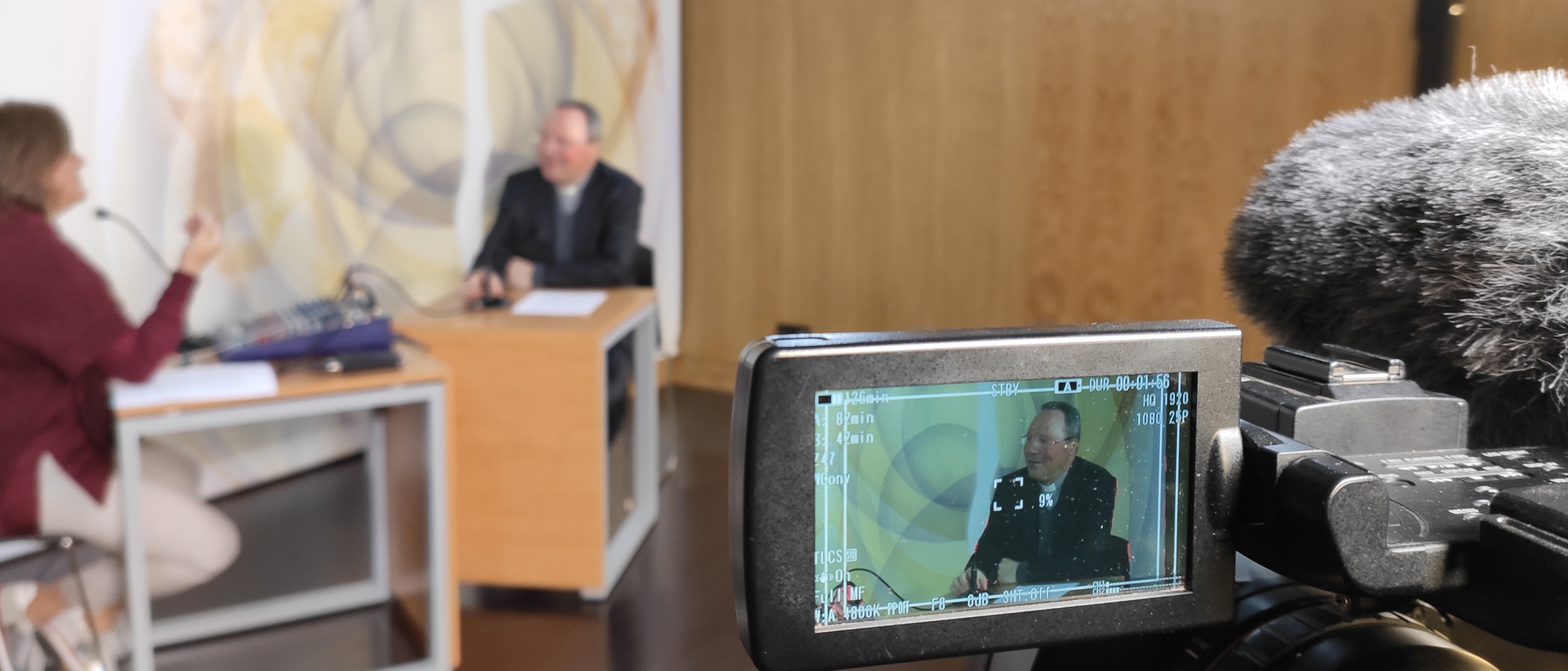06 january, 2020

“The ways to holiness are the thousand and one ways of going through life doing good. That's what being a saint is about,” says Father Carlos CabecinhasThe Rector of the Shrine is the Guest of #fatimanoseculoXXI January PODCAST
Peter, in the Acts of the Apostles, refers to Jesus saying: “He went about doing good”. This could be the epitaph each Christian most desires after his short passage through this world. And this is what the rector of the Shrine of Fatima said in the #fatimanoseculoXXI PODCAST, as he was pondering over the meaning of the theme of the new pastoral year. Indeed, this year, the Shrine of Fatima invites pilgrims to “give thanks for living in God”, which is but another way of describing the path to holiness that all the baptized are expected to follow. Yet, there is not a single itinerary: “The paths to holiness are the thousand and one ways of going through life, of living it, doing good. That's what being a saint is about,” says Father Carlos Cabecinhas. “I think that the best way to be holy is to look at our own life to identify what we need to do in order to promote good, either in our relationships to the others or in our relationships with the created nature - which is a gift that is offered to us - and how to go through it and do good in our own self-giving to God. There are a thousand and one declensions of the ways to go through life doing good and that is what makes us holy. I believe that everybody would like to have, at the end of his or her life, as an epitaph, what Peter said about Jesus: 'here lies someone who went about doing good,'” the Rector adds, rejecting any magical formula for living our own holiness.
The Triennium 2020-2023After the end of the first cycle of three years, in this post-centenary period, Fatima focuses its attention on youth, with this great event that the Portuguese Church is preparing, the World Youth Day (WYD) in Lisbon in 2022, as its horizon. “Regardless of what our expectations may be, what we know is that many of the (Christian) youth who will come to Portugal will come to Fatima, because Fatima is a reference for them when speaking about Portugal. Many young people will probably want to visit Fatima and experience there the relation to Mary,” the Rector declares. And what does Fatima have to tell to these young people? “The centrality of God. And no one like young people can understand this centrality so well. They are, by nature, the most dissatisfied, but also those who are most committed to radical choices, and this is why they will also be the ones who most easily perceive this offering to God in its most radical form, the form that has been exposed to us by the little shepherds since the first apparition.” On the other hand, he underlines that, “The WYD, being an event that attracts many young people, demands a very great involvement of the Church that welcomes it. For the Portuguese Church, which is involved in the preparation of this day, it would also not be conceivable to think of an event of this magnitude without Fatima having a relevant role in it. Therefore, I expect a deep involvement in the preparation and then in the realization of this festive event that the WYD 2022 will be.” The Vocation of Fatima103 years after the apparitions and following various theological, historical, sociological and even anthropological studies on the message left by the Blessed Virgin in Cova da Iria, are these contents still of any actuality? The answer is clear: “The message of Fatima takes us deep into to the heart of the Gospel,” with “very important” questions. “We can see today what are the threats to peace. The various episodes of tension that are taking place all over the world call into question Peace as a gift. Fatima can help us to be peacemakers. Fatima must be a place of reference for those who pray for peace,” declares the Rector of the Shrine. On the other hand, “Fatima continues, and must continue, to be an invitation to interiority. In today's world of great dispersion, it is important that Fatima allows us to live this necessary interiority, bringing us down to the fundamental point of life, which is to see our life in the light of God.” Then there is “the internationality of Fatima: it is important that the Marian icon be not only the image of Our Lady of Fatima, but also Her message.” Eventually, “The Message must help us to respect nature. The life of the little shepherds shows it, shows the respect that Francisco had for nature. This will be one of the patterns of the pastoral of Fatima.” Therefore, “Ecology, interiority and peace will be key words of the pastoral of Fatima all through this second century,” he concludes.
|